Two cleaning product giants have not come off squeaky clean in Federal Court, with both found to have breached Australian Consumer Law (ACL) over claims made about their premium dishwashing tablets.
RB (Hygiene Home) Australia (RB) alleged Procter & Gamble Australia (P&G) had made misleading claims that its 30 Minute Miracle dishwashing tablets cleaned better than other dishwasher tablets in the Fairy range, and better than RB’s Finish dishwasher tablets.
P&G made a cross claim, alleging RB had made misleading claims that its Finish Ultimate Plus was the best of its Finish dishwashing tablets, and that its Finish 0% dishwashing tablets did not contain any ingredient unnecessary for cleaning.
In his 57-page judgment handed down yesterday, Justice Yates explained his decision involved consideration of a range of factors including the features of automatic dishwasher performance, the use of colourants in consumer products, the chemistry of water hardness, and the dishwashing tablet market in Australia.
He described how the parties agreed to a protocol for the testing of the products, based on the use of seven internationally recognised “soils” for dishwashers, plus baked-on lasagne.
Expert evidence was provided by people from across the globe, including a doctor of organic chemistry from the US, a doctor of biochemistry from Belgium, a doctor of environmental microbiology from Australia, a professor of household technology from Germany, and a professor of chemical engineering from the UK.
Several of the experts raised concern at the use of baked-on lasagne as a soil, claiming it might add “additional load” to the cleaning process, that it “was not clear how this would impact the cleaning of the soils on the other items of wash ware”, and that “without the precise specification of the recipe and measurement method” the results might not be reliable.
“Notwithstanding these comments and observations, the parties do not dispute that the experimental design of the protocol, and the methodologies that have been used to analyse the test results, are appropriate to detect significant statistical differences in the cleaning performance of the tested products,” Justice Yates said.
Analysis of the test results showed 30 Minute Miracle dishwashing tablets did not clean better than another premium dishwashing tablet in the Fairy range, Fairy Platinum Plus. It also showed there was no meaningful difference in the cleaning performance of Finish Ultimate Plus and another premium dishwashing tablet in the Finish range, Finish Ultimate Pro.
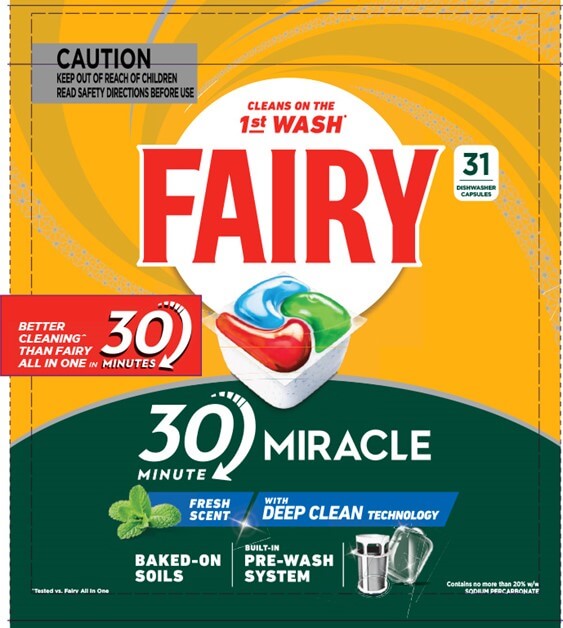
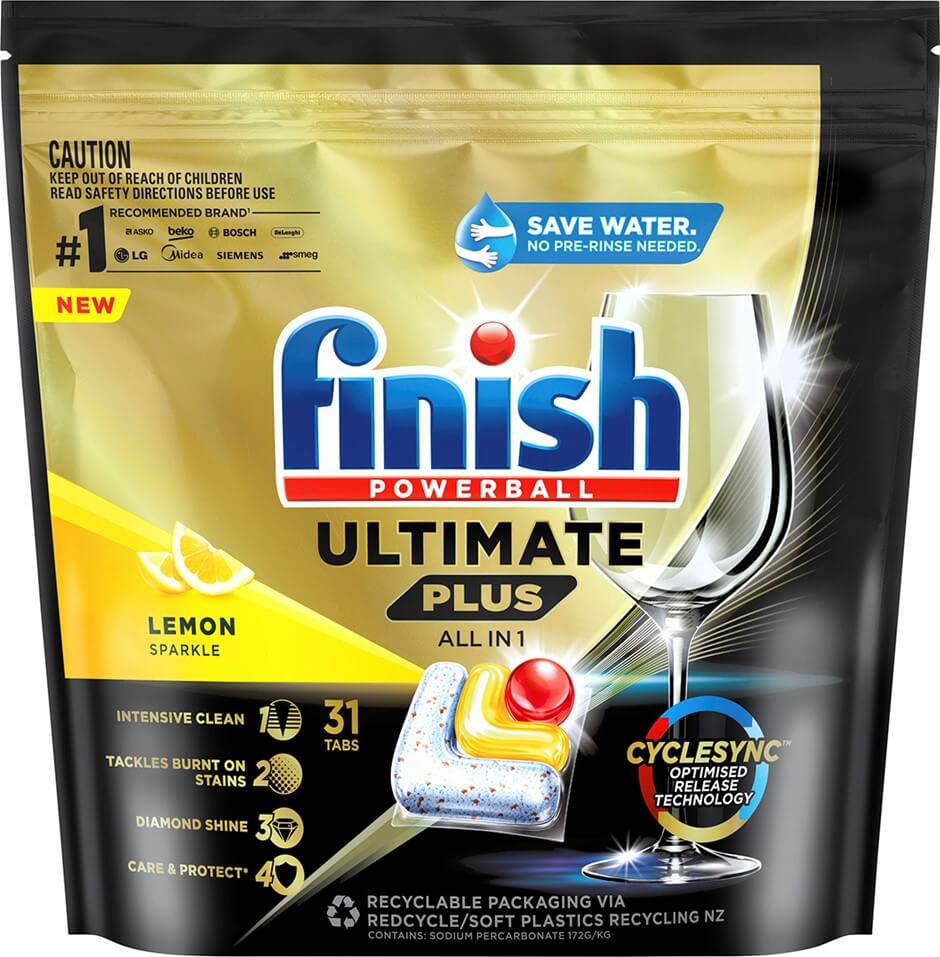
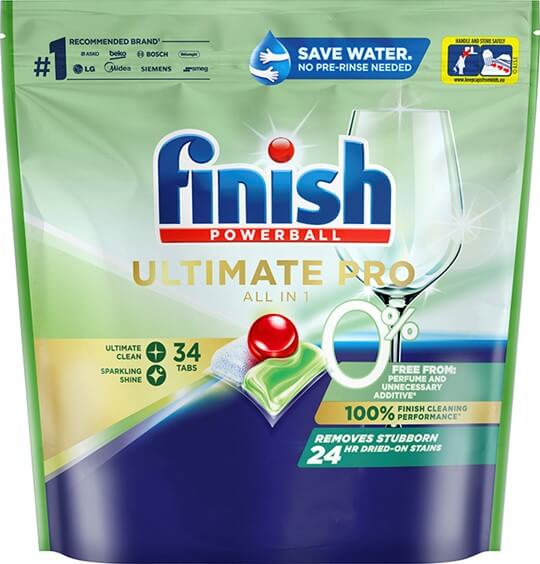
An analysis of the ingredients of Finish Ultimate Pro 0% dishwashing tablets showed the tablets contained colourants, which were found to be unnecessary for the tablets to perform their cleaning function.
Justice Yates found P&G had engaged in misleading or deceptive conduct or conduct that was likely to mislead or deceive, engaged in conduct that was liable to mislead the public, and made a false or misleading representation, in relation to its comparison between 30 Minute Miracle dishwashing tablets and other Fairy dishwashing tablets.
However, he said he did “not accept that reasonable and ordinary consumers would understand the comparisons to be with respect to Miracle in relation to all other dishwashing tablets (i.e., including all other brands of dishwashing tablets)”.
Justice Yates found RB had engaged in misleading or deceptive conduct or conduct that was likely to mislead or deceive, engaged in conduct that was liable to mislead the public, and made a false or misleading representation, in relation to its comparison between Finish Ultimate Plus dishwashing tablets and other Finish dishwashing tablets.
He also found RB in breach of the ACL in relation to its Finish 0% dishwashing tablets containing colourants.
“I accept that the use of colourants in dishwashing tablets plays a role in RB’s marketing of its products. In this sense, colourants are not “unnecessary additives” to the products; they are necessary for RB’s marketing,” he said.
“However, I do not think that ordinary and reasonable consumers are concerned about what RB considers to be important or necessary for its marketing.
“Moreover, ordinary and reasonable consumers would not expect RB to be communicating information about its marketing needs. Ordinary and reasonable consumers will be concerned about the attributes and cleaning function of the dishwashing product they are buying.”
Justice Yates concluded it was appropriate for him to make declarations of contraventions, “given the contraventions I have found, which concern the interests of consumers and not just the private interests of the parties”.
He stated that because the parties could not agree on the form of injunctions to be granted, or on the question of costs, he ordered each party to provide written submissions on the orders that should be made by December 8.
He also ordered that unless the parties requested an oral hearing, and if it was otherwise appropriate, the question of the remaining relief to be granted would be determined on the papers.



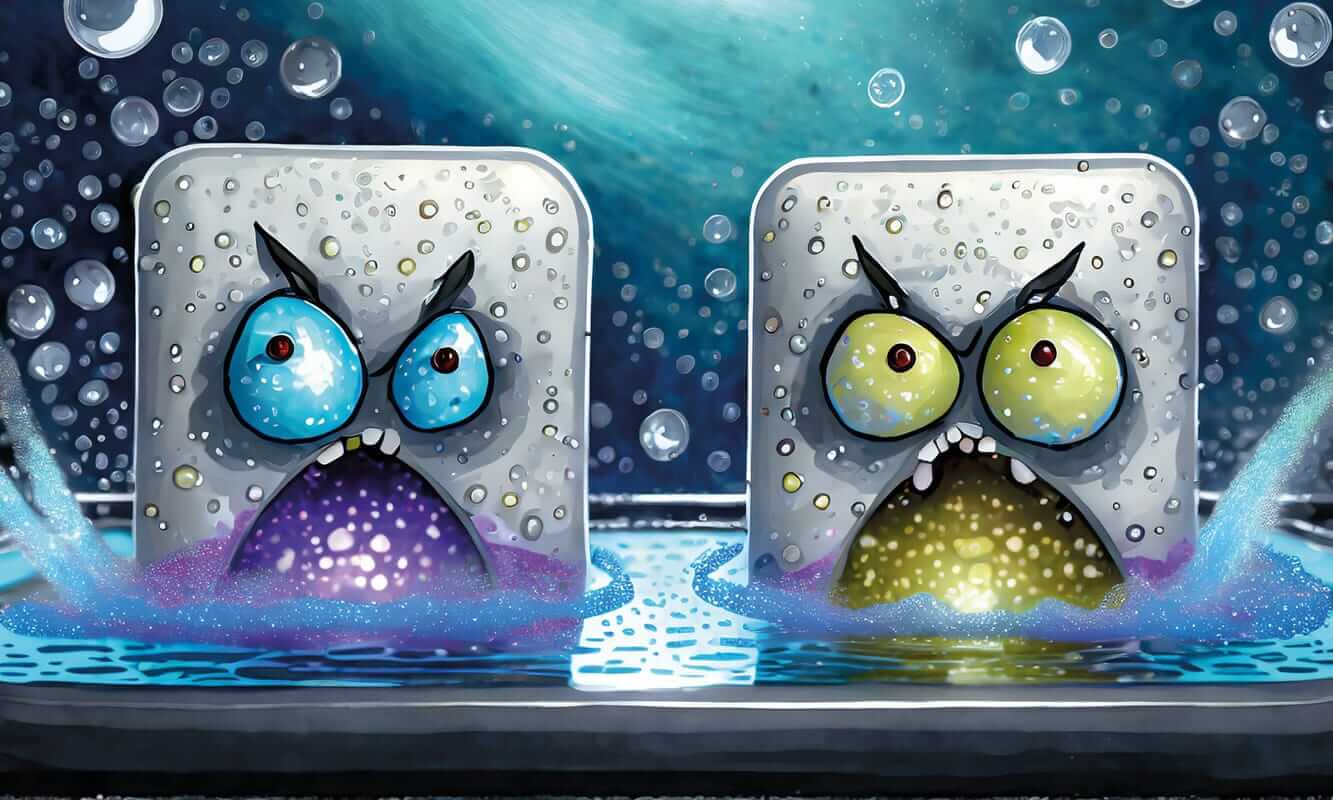

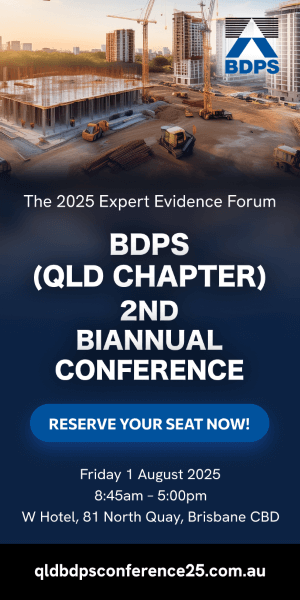

Share this article